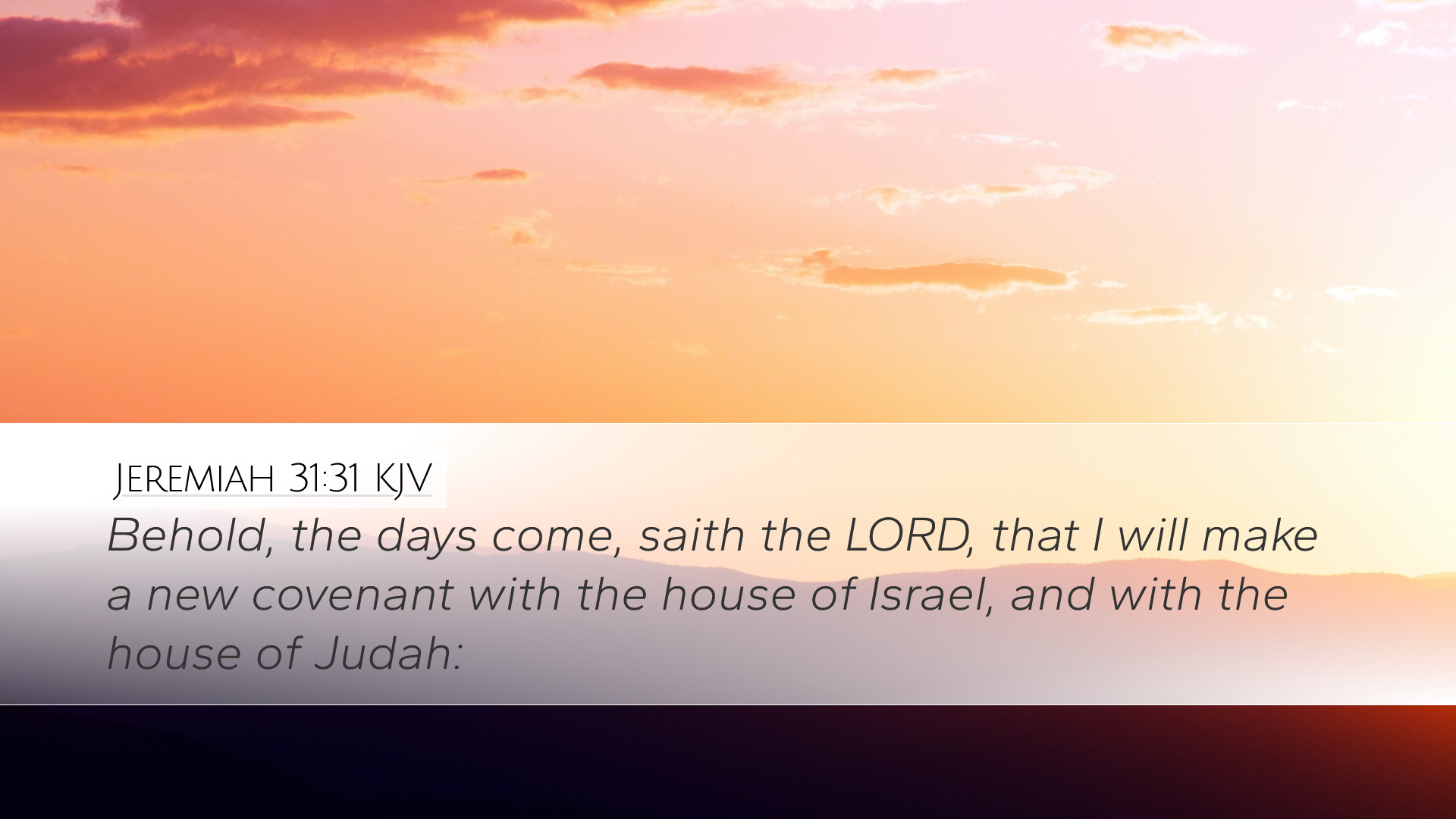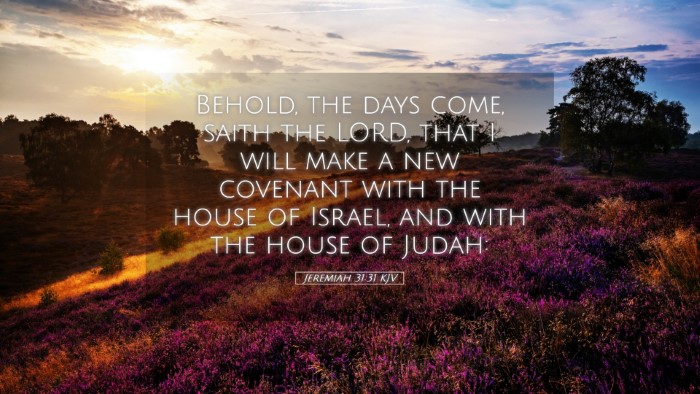Jeremiah 31:31 - A New Covenant
Verse Context:
Jeremiah 31:31 states, "Behold, the days are coming, declares the LORD, when I will make a new covenant with the house of Israel and the house of Judah." This verse signals a pivotal moment in the prophetic ministry of Jeremiah, as it foreshadows the coming of a new covenant that reshapes the relationship of God with His people.
Historical Background
The historical context of Jeremiah's prophecy is crucial to understanding its significance. This period marks a time of great turmoil for Israel, with impending destruction by Babylon. Jeremiah, as the weeping prophet, communicates God's lament and desire to restore His people even amidst their disobedience.
Meaning of the New Covenant
The promise of a new covenant is profound, indicating a shift from the old covenant established at Sinai. The old covenant was marked by law and external observance; the new covenant, however, emphasizes internal transformation and a personal relationship with God.
Insights from Public Domain Commentaries
Matthew Henry:
Matthew Henry emphasizes the graciousness of God in offering a new covenant, suggesting that it reflects God's willingness to forgive and restore. He interprets this covenant as not an abolition of the old but a fulfillment and expansion of its scope. The new covenant offers more than just promises; it embodies the very essence of God’s laws within the hearts of His people.
Albert Barnes:
Albert Barnes underscores that the new covenant is distinct in its establishment and permanence. He notes that it is characterized by an intimate knowledge of God among His people, where the law is not merely external but inscribed on their hearts. This point reflects a transformation where obedience flows from an internalized relationship rather than mere compliance with external commands.
Adam Clarke:
Adam Clarke posits that the “new covenant” signifies a more profound assurance of faith and relevance to humanity. He highlights the fact that this covenant introduces a phase where grace supersedes law, allowing for a personal and direct relationship with God. Clarke also emphasizes the communal aspect of the covenant as it is made with both Israel and Judah, suggesting a future unity among God's people.
Theological Implications
The Nature of God’s Promise
The announcement of a new covenant reveals God's unwavering faithfulness and His desire for a relationship characterized by love, mercy, and understanding. It invites theologians and scholars to explore the depth of God's commitment to His people, irrespective of their failings.
Implications for Christian Faith
From a Christian perspective, this new covenant is fulfilled in Jesus Christ. The New Testament writers expand on Jeremiah's prophecy, particularly in Hebrews 8:8-12, where the author draws parallels between the old and new covenants, affirming that Jesus’ sacrificial death inaugurates this promise.
Pastoral Application:
Pastors can reflect on this covenant in their sermons, using it as a source of hope and a reminder of God’s persistent grace. The inclusivity of the new covenant serves as a cornerstone for pastoral care and community building, urging believers to embody the love and forgiveness that characterizes God’s interaction with humanity.
Covenant Language and Its Significance
Covenant language throughout Scripture marks important milestones in the relationship between God and humanity. The promise of a “new covenant” invites readers to consider their own response to God's gracious offer.
Reflection on Personal and Corporate Responsibility
- Personal Reflection: Individuals are invited to examine how the laws inscribed on their hearts affect their daily living and interactions with others.
- Corporate Responsibility: The church, as the body of Christ, has a mandate to reflect the love and community inherent in this new covenant, promoting unity and reconciliation among its members.
Conclusion
Jeremiah 31:31 serves as a powerful reminder of God's extraordinary plan for humanity—a plan that promises redemption, inner transformation, and a renewed relationship. It challenges believers to appreciate the depth of this promise and to reflect that light to a world in need of hope.


